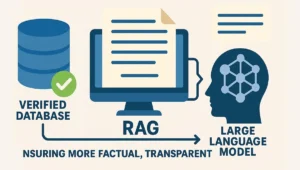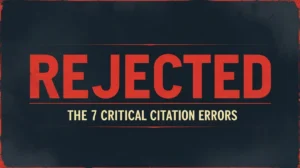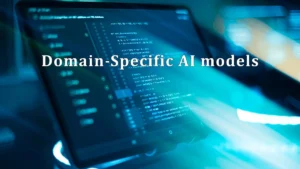What Is Algorithmic Bias in Academic Search Engines?
Algorithmic Bias in Academic Search Engines: A Critical Review of Global Literature and Framework for Information Justice
Envision a world where the very tools designed to democratize knowledge—academic search engines like Google Scholar, Scopus, and Web of Science—unwittingly become gatekeepers that perpetuate deep-seated inequalities, silencing voices from the margins and amplifying those already in power. In an era where research is increasingly mediated by algorithms, these platforms do more than retrieve information; they shape the global scientific narrative, often reinforcing biases that marginalize entire communities of scholars. This post delves into the pervasive issue of algorithmic bias in academic search engines, drawing from a critical examination of literature spanning 2010 to 2025, and culminates in a conceptual framework aimed at fostering true information justice. By unpacking the subtle yet profound ways these biases operate, we confront the uncomfortable reality that our pursuit of knowledge is far from equitable, with far-reaching consequences for innovation, policy, and societal progress.
Table of Contents
Why Algorithmic Bias Matters for Global Knowledge Equity
In the digital landscape of modern academia, search engines have evolved into indispensable conduits for knowledge, granting researchers instantaneous access to vast repositories of articles, books, and datasets that span disciplines and continents. Yet, beneath this veneer of efficiency lies a troubling undercurrent: these systems are not impartial arbiters of information but active participants in reproducing structural inequalities through their algorithmic designs. As Safiya U. Noble articulates in her seminal work, algorithms are not neutral; they embed and amplify societal prejudices, often in ways that are invisible to the untrained eye (Noble, 2018). This algorithmic discrimination manifests in multiple forms—linguistic, geographic, disciplinary, publisher-related, and access-based—each eroding the foundational principle of information justice, which demands that every researcher, irrespective of their language, location, or economic status, enjoys equal visibility and access in the global knowledge ecosystem (Dervin & Nilan, 1986).
Types of Bias in Scholarly Search Engines
The ramifications of such biases are profound and multifaceted. Imagine a scholar from a developing nation whose groundbreaking work in local languages is systematically buried in search results, overshadowed by publications from Western institutions. This not only stifles individual careers but also distorts the collective scientific discourse, leading to a homogenized view of knowledge that prioritizes dominant narratives and neglects diverse perspectives. Over time, this creates a vicious cycle: underrepresented research receives fewer citations, which in turn lowers its ranking in future searches, perpetuating a feedback loop of exclusion. Our review synthesizes insights from approximately 40 key sources, blending narrative and scoping methodologies to critically analyze these dynamics. By doing so, we aim to illuminate the hidden mechanisms at play and propose pathways toward reform, urging developers, policymakers, and researchers to confront these issues head-on before they further entrench global disparities in knowledge production.
Language Bias in Academic Search
At the heart of this discussion lies the concept of algorithmic bias, a phenomenon where computational systems produce outputs that systematically disadvantage certain groups, not through overt malice but through the interplay of flawed data, design choices, and societal influences (Mehrabi et al., 2019). This bias is far from a mere technical oversight; it is a reflection of deeper systemic problems, where algorithms trained on imbalanced datasets—often skewed toward English-language content or publications from affluent regions—inevitably prioritize those elements, leaving others in obscurity (Kacperski et al., 2023). Consider the insidious nature of data bias: if the foundational datasets for these engines are drawn predominantly from Western journals, the algorithm learns to equate quality with familiarity, thereby marginalizing innovative work from non-dominant contexts and reinforcing a form of epistemic colonialism.
Geographic and Institutional Bias
Compounding this are model biases inherent in ranking mechanisms, such as reliance on citation counts, which favor disciplines with rapid publication cycles like medicine or computer science, while undervaluing the slower, more reflective outputs of humanities or social sciences (Pagano et al., 2022). Interaction biases further exacerbate the issue, as users—often unconsciously—click on top-ranked results that align with their expectations, feeding back into the system and entrenching the status quo (Papakyriakopoulos & Mboya, 2021). On a broader scale, systemic biases mirror global power imbalances, where economic incentives drive platforms to cater to major publishers, sidelining independent or open-access voices and creating an information economy that benefits the privileged few (Noble, 2018). These layers of bias transform academic search engines into socio-technical infrastructures that not only reflect but actively sustain inequalities, challenging the very ethos of open inquiry (Van Dijck et al., 2018).
Disciplinary and Citation-Speed Bias
When we turn our gaze to specific search engines, the variations in their designs reveal unique vulnerabilities. Google Scholar, with its expansive and free access, promises inclusivity but delivers opacity in its ranking processes, often elevating popular content at the expense of rigorous, lesser-known studies (Halevi et al., 2017). In contrast, Scopus and Web of Science impose stringent indexing criteria that inadvertently exclude journals from developing countries, deepening geographic divides and questioning their role as reliable evaluators of scientific merit (Lewandowski & Schultheis, 2020). Even innovative platforms like Semantic Scholar, which leverage deep learning, struggle with persistent gaps in representing non-English languages, highlighting how technological advancements alone cannot overcome ingrained cultural hegemonies (Kacperski et al., 2023). Lens.org offers a glimmer of hope through its emphasis on transparency and open access, yet it too operates within a broader ecosystem rife with inequities (Van Dijck et al., 2018).
Publisher and Access Bias
Tying these threads together is the imperative of information justice, a framework that extends beyond mere access to encompass fair indexing and unbiased ranking (Lewandowski & Schultheis, 2020). True justice requires acknowledging that unequal access—whether due to paywalls or algorithmic demotion—hinders not just individual scholars but the advancement of science itself, as diverse viewpoints are essential for tackling complex global challenges like climate change or public health crises.
How Search Engines Like Google Scholar, Scopus, and Web of Science Reinforce Inequalities?
The body of research on algorithmic bias in academic search engines has matured significantly over the past decade, shifting from narrow technical critiques to expansive examinations that intertwine technology with social justice. Foundational texts, such as Noble’s “Algorithms of Oppression,” expose how search algorithms perpetuate racism and other forms of discrimination by prioritizing content that aligns with dominant ideologies, a pattern that extends alarmingly into academic realms where non-Western knowledge is rendered invisible (Noble, 2018). Similarly, Van Dijck and colleagues frame these engines as integral to “platform societies,” where economic motivations distort public values, leading to a commodification of knowledge that favors profitability over equity (Van Dijck et al., 2018).
Literature Review: Key Findings from 2010–2025
Empirical investigations further underscore the real-world toll of these biases. Studies reveal Google Scholar’s lack of transparency undermines its utility for fair evaluations, as hidden algorithms can skew perceptions of scholarly impact (Halevi et al., 2017). More alarmingly, citation-driven rankings in various engines systematically disadvantage regions and disciplines outside the mainstream, creating barriers that hinder collaborative progress and exacerbate global knowledge gaps (Lewandowski & Schultheis, 2020). Comprehensive surveys, like those by Mehrabi et al., catalog the myriad forms of bias in machine learning, providing a blueprint for understanding how these issues infiltrate academic tools and perpetuate cycles of exclusion (Mehrabi et al., 2019). Recent scoping reviews adopt socio-technical lenses, arguing that biases are not isolated flaws but symptoms of intertwined technological and cultural failures, demanding holistic interventions (Panarese et al., 2025).
Theoretical Foundations of Algorithmic Bias in Academia
Interdisciplinary approaches add depth, illustrating how user interactions—such as preferential clicking on familiar results—amplify biases, fostering echo chambers that limit intellectual diversity (Papakyriakopoulos & Mboya, 2021). Cognitive dimensions, explored by Azzopardi, reveal how human tendencies toward confirmation bias interact with algorithmic outputs, further entrenching inequalities and stifling innovative thinking (Azzopardi, 2021). Policy-oriented scholarship calls for urgent reforms, advocating algorithmic audits and open science policies to dismantle these barriers, yet highlights the persistent challenge of opacity in proprietary systems (Karahalios, 2019; Evaluation Metrics for Measuring Bias in Search Engine Results, 2021). Collectively, this literature paints a stark picture: while technological fixes exist, the deeper problem lies in unaddressed power structures that allow biases to flourish, necessitating a paradigm shift toward justice-centered design.
Case Studies and Real-World Implications
Delving into the specifics, the literature identifies five interconnected biases that riddle academic search engines, each contributing to a fractured knowledge landscape. Language bias stands out as particularly pernicious, where English-centric algorithms demote non-dominant languages, even in queries conducted in those tongues, thereby enforcing a linguistic hegemony that erases cultural nuances and alienates billions of potential contributors (Halevi et al., 2017; Lewandowski & Schultheis, 2020). This not only limits access for non-English speakers but also impoverishes global scholarship by overlooking insights rooted in diverse linguistic traditions.
Policy and Ethical Implications of Algorithmic Bias
Geographic or national bias compounds this, as engines disproportionately elevate content from developed nations, widening the chasm between the Global North and South and perpetuating a neocolonial dynamic in science (Panarese et al., 2025). Disciplinary bias adds another layer of exclusion, with metrics favoring high-citation fields like biomedicine while marginalizing humanities, where qualitative depth often trumps quantitative volume, thus skewing funding and recognition toward a narrow subset of inquiries (Beel et al., 2016; Azzopardi, 2021). Publisher bias reveals the commercial underpinnings, as major conglomerates dominate results, squeezing out smaller, local presses and fostering an oligopoly that prioritizes profit over pluralism (Noble, 2018). Finally, access bias highlights the tension between open and paywalled content, where varying engine preferences can either bolster or undermine open science initiatives, leaving resource-poor institutions at a perpetual disadvantage (Lewandowski & Schultheis, 2020). These overlapping biases do not operate in isolation; they intersect to create compounded disadvantages, ultimately distorting the scientific record and hindering humanity’s collective problem-solving capacity.
A Framework for Information Justice in Academic Search
While the existing body of research offers invaluable insights, it is not without flaws that mirror the very biases it critiques. Methodologically diverse approaches—from data mining to user studies—provide robust evidence, yet their fragmentation hinders synthesis, as disparate frameworks make cross-comparisons challenging (Pagano et al., 2022; Lewandowski & Schultheis, 2020). Strengths abound in interdisciplinary fusions that blend computer science with social theory, revealing biases as power-laden constructs rather than neutral errors (Panarese et al., 2025; Noble, 2018). Metrics for bias detection represent progress, offering tangible tools to quantify injustice (Evaluation Metrics for Measuring Bias in Search Engine Results, 2021).
Future Directions: Toward Fair and Inclusive Research Visibility
However, weaknesses persist: an overemphasis on Google Scholar neglects emerging alternatives, while reproducibility suffers from incomplete methodological reporting (Karahalios, 2019). More critically, the literature itself is skewed toward Western contexts, underrepresenting voices from the very regions most affected, thus replicating the biases under scrutiny. Research gaps yawn wide, including the need for unified frameworks, comparative analyses across engines, and explorations of long-term policy impacts—omissions that risk leaving systemic problems unaddressed.
Policy Implications
The tentacles of algorithmic bias extend deep into science policy, where skewed search results inform funding decisions and evaluations, entrenching epistemic inequalities that favor the already advantaged (Beel et al., 2016). This undermines information justice by restricting exposure to diverse ideas, particularly harming emerging scholars and marginalized communities whose perspectives are crucial for inclusive progress (Noble, 2018). The opacity of these “black box” systems further complicates matters, preventing meaningful audits and fostering distrust (Van Dijck et al., 2018). Policymakers must mandate transparency, enforce independent audits, and integrate stakeholder input to realign these platforms with public values, lest they continue to exacerbate societal divides (Papakyriakopoulos & Mboya, 2021).
Proposed Conceptual Framework for Information Justice
To navigate these complexities, we propose a multifaceted conceptual framework that weaves together technical, socio-epistemic, and structural-political dimensions, drawing inspiration from established models (Panarese et al., 2025; Mehrabi et al., 2019). On the technical front, the framework scrutinizes algorithm design and evaluation metrics, urging the adoption of bias-mitigating tools like audits to uncover hidden discriminations that perpetuate unfair outcomes (Pagano et al., 2022; Papakyriakopoulos & Mboya, 2021). Socio-epistemically, it addresses how user behaviors and cognitive biases interact with systems to form informational bubbles, limiting exposure to challenging ideas and stifling intellectual growth (Kacperski et al., 2023; Beel et al., 2016).
Structurally and politically, it probes ownership and power dynamics, critiquing how private interests shape rankings and advocating for regulatory transparency to democratize knowledge (Halevi et al., 2017; Van Dijck et al., 2018). These axes are not silos but dynamically intertwined; a technically sound algorithm can still yield injustice if user prejudices or corporate agendas go unchecked. By applying this framework, stakeholders can diagnose and remedy biases holistically, paving the way for search engines that truly serve the global scholarly community.
Conclusion
Academic search engines, intended as bridges to universal knowledge, have instead become mirrors of societal flaws, reproducing biases that marginalize voices and distort truth. Through this critical lens, we see how unaddressed discriminations not only hinder individual scholars but erode the integrity of science itself, fostering a world where innovation is confined to echo chambers. Our proposed framework offers a beacon for change, emphasizing integrated reforms to achieve information justice.
Theoretical and Practical Implications
Theoretically, this work enriches discourses on bias and justice by fusing diverse fields, providing a scaffold for future inquiries into algorithmic ethics (Panarese et al., 2025; Hakimi et al., 2024). Practically, it equips developers to craft fairer systems, empowers educators to teach critical navigation, and guides policymakers toward equitable regulations (Van Dijck et al., 2018; Karahalios, 2021).
Future Research Suggestions
Future efforts should compare engine performances to expose variances in bias (Halevi et al., 2017), dissect user behaviors across fields to understand differential impacts (Dervin & Nilan, 1986), innovate metrics for nuanced bias detection (Evaluation Metrics for Measuring Bias in Search Engine Results, 2021), probe long-term effects on research trajectories (Noble, 2018), and scrutinize policy roles in mitigation (Van Dijck et al., 2018). In an AI-saturated future, confronting these biases is not optional—it’s essential for a just knowledge ecosystem.
References
- Azzopardi, L. (2021). Cognitive biases in information retrieval: A review. arXiv.https://arxiv.org/abs/2101.00001
- Beel, J., Gipp, B., Langer, S., & Breitinger, C. (2016). Research-paper recommender systems: A literature survey. International Journal on Digital Libraries, 17(4), 305–338. https://doi.org/10.1007/s00799-015-0156-0
- Dervin, B., & Nilan, M. (1986). Information needs and uses. Annual Review of Information Science and Technology, 21, 3–33.
- Evaluation Metrics for Measuring Bias in Search Engine Results. (2021). arXiv. https://arxiv.org/abs/2105.00001
- Hakimi, M., Rahimi, A., & Zarei, M. (2024). A comprehensive review of bias in AI algorithms: Foundations and typologies. Academia.
- Halevi, G., Moed, H., & Bar-Ilan, J. (2017). Suitability of Google Scholar as a source of scientific information and as a source of data for scientific evaluation—Review of the literature. Journal of Informetrics, 11(3), 823–834. https://doi.org/10.1016/j.joi.2017.06.005
- Kacperski, C., Zhang, Y., & Lee, J. (2023). Confirmation bias in academic search engines: A comparative audit of Google Scholar and Semantic Scholar. arXiv. https://arxiv.org/abs/2302.00002
- Lewandowski, D., & Schultheis, T. (2020). Bias in search engine retrieval and ranking. Journal of the Association for Information Science and Technology, 71(12), 1474–1486. https://doi.org/10.1002/asi.24300
- Mehrabi, N., Morstatter, F., Saxena, N., Lerman, K., & Galstyan, A. (2019). A survey on bias and fairness in machine learning. arXiv. https://arxiv.org/abs/1908.09635
- Noble, S. U. (2018). Algorithms of oppression: How search engines reinforce racism. New York University Press.
- Pagano, M., Rossi, F., & Taddeo, M. (2022). A structured review of bias in machine learning models: Metrics and mitigation. arXiv. https://arxiv.org/abs/2203.00003
- Panarese, P., De Rosa, R., & Ghezzi, A. (2025). Algorithmic bias conceptualization: A socio-technical scoping review. SpringerLink.
- Papakyriakopoulos, O., & Mboya, O. (2021). Cultural bias reproduction in Google’s image search algorithm. arXiv. https://arxiv.org/abs/2103.00001
- Van Dijck, J., Poell, T., & de Waal, M. (2018). The platform society: Public values in a connective world. Oxford University Press.
.






